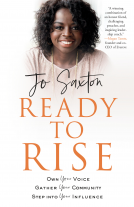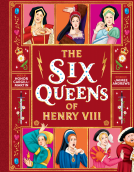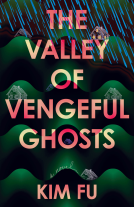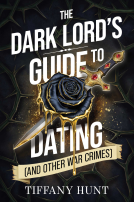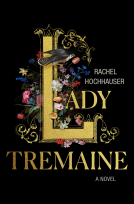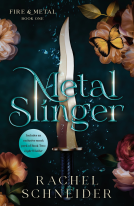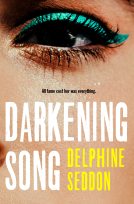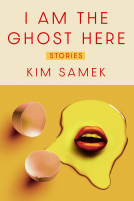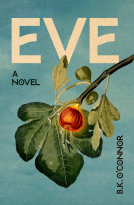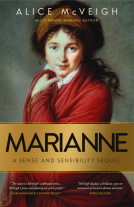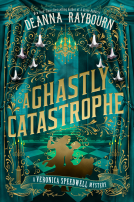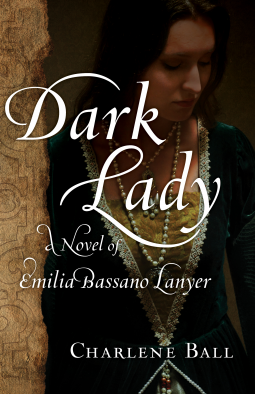
Dark Lady
A Novel of Emilia Bassano Lanyer
by Charlene Ball
This title was previously available on NetGalley and is now archived.
Send NetGalley books directly to your Kindle or Kindle app
1
To read on a Kindle or Kindle app, please add kindle@netgalley.com as an approved email address to receive files in your Amazon account. Click here for step-by-step instructions.
2
Also find your Kindle email address within your Amazon account, and enter it here.
Pub Date Jun 27 2017 | Archive Date May 31 2017
Description
In the years that follow, Emilia is forced to make a number of difficult decisions in her efforts to survive, and not all of them turn out well for her. But ultimately, despite the disadvantaged position she was born to, she succeeds in pursuing her dreams of becoming a writer—and even publishes a book of poetry in 1611 that makes a surprisingly modern argument for women’s equality.
A Note From the Publisher
Advance Praise
“… vivid, poetical writing….a beautifully drawn portrait of an exceptional woman in a time of plague, war, and political danger.”—Stephanie Cowell, author of The Players: a Novel of the young Shakespeare, Claude and Camille, and Marrying Mozart, Recipient of the American Book Award
"Emilia Bassano Lanyer emerges in this sweeping historical novel as more than the elusive Dark Lady of William Shakespeare's sonnets. She is an artist in her own right, mysterious indeed but also strong, resourceful, and intelligent enough to maneuver her way through a turbulent, dangerous world. Politics and poetry collide in this suspenseful tale of love, lust, and literature in Elizabethan England."—Sarah Kennedy, author of City of Ladies
Marketing Plan
No Kindle e-galley available on NetGalley at this time.
No Kindle e-galley available on NetGalley at this time.
Available Editions
| EDITION | Other Format |
| ISBN | 9781631522284 |
| PRICE | $16.95 (USD) |
| PAGES | 300 |
Average rating from 5 members
Featured Reviews
 Nikkia A, Reviewer
Nikkia A, Reviewer
Thanks She Writes Press and netgalley for this ARC.
A glimpse of Shakespeare's world thru those that knew him best and before his fame. Charlene Ball brings Emilia to life and our attention. This novel will hopefully inspire other female poets and young girls also.
 The Idle Woman ., Reviewer
The Idle Woman ., Reviewer
After reading The Girl in the Glass Tower, I was keen to learn more about the poetess and musician Aemilia Lanyer, and so was thrilled when I was offered this book to review. It takes a much broader view of Aemilia's life (or Emilia's, as she's called here), following her from childhood to middle age, and exploring the challenges faced by well-educated, independent women even in the age of Elizabeth I: surely the paragon of such virtues. Unlike The Girl in the Glass Tower, there is little mention of Arbella Stuart here: this isn't a book about court intrigue so much as the simpler human desire for self-expression, and the limits placed upon that. Accompanied by an engaging cast of secondary character, Emilia is brought into appealingly vivid life and the book teems with the sights, sounds and scents of Tudor England.
Emilia Bassano is seven years old when her mother sends her away to be fostered by the Countess of Kent, taking her at one leap from a modest house in Bishopsgate to the maze of corridors at Whitehall and Greenwich. She remains with the Countess just long enough to taste the savour of an elegant lifestyle: the books; the discussions; the dances and festivals; but all things must end, and when her patroness marries, Emilia must return home to care for her ailing mother, educated beyond all necessity for her station in life. Encircled by the suffocating attention of her wider family - her Bassano relatives, who make up the jealousy-guarded members of the court's Consort, and the domineering matriarch Lucretia - Emilia itches for freedom. At first she seems to find it with Lord Hunsdon, a much older, charming nobleman who takes her into his protection. But she is too quick, too sharp and too gifted to be happy playing house as a kept woman.
Lord Hunsdon's position as Lord Chamberlain gives him the chance to indulge his love of the theatre and he becomes patron to a troupe of players. Among them is the quicksilver Warwickshire actor, playwright and Jack-of-all-trades Will Shakespeare, who awakens a new spark of adventure in Emilia's heart. They romp around London together, savouring the feeling of forbidden love (for he is married; she is spoken for). But Emilia begins to understand, too late perhaps, that all men are the same: not looking for a kindred soul with which to unearth the mysteries of the world, but for physical possession. When her adventures leave her pregnant, she realises that the time has come for her to accept her family's demands for her marriage - yet knowing, too, that she has seen too much of the world to ever be happy as a housewife. Her mind brims with the urge to write, to answer the charge so often made against women - that they exist only to be loved - and to argue for a world in which women can think, can be admired and can share their thoughts.
This is a world in which dance, music, poetry and theatre all flourish - but it's also a time of suspicion and fear. For the Bassanos (expatriate Venetian Jews), life is a patchwork of secrets, carefully guarded and potentially lethal. Emilia exists between this world and that of the court, belonging nowhere, finding friendship only in rare places and too often finding herself dependent on men who have no care for her own wellbeing. She exists between too many worlds: the court and the city; Christian and Jew; Italian and English. She is both all and nothing, pulled from every side and suffering the fate of so many things which are exotic rarities - the covetous eye of the would-be possessor.
The first half of the book was, I felt, extremely strong - rich with the scents, textures and fine detail of Tudor England. In the second half, however, I felt that Emilia's story was being pared down to a series of violent assaults by men, and that each and every man she met inevitably ended up trying to force his hand up her skirt. I understand that Ball is probably trying to emphasise the male attitude to women in the Elizabethan period - an attitude that Emilia had to struggle against as a writer and musician, and as the paramour of a married nobleman - but these interactions became a bit monotonous. Even Kit Marlowe tries to get her into bed (although, to be fair to Kit, Emilia is dressed as a boy at the time). It felt as if there was a lack of subtlety in the relationships between men and women, with no space for gentler forms of friendship.
Nevertheless, Ball's writing is very evocative and she achieves she remarkable feat of tying in various historical characters without making it too obvious. Indeed, there were some characters who I felt sure must be imaginary, but who turned out to be amazingly real: take the rambunctious Moll Frith, for example (a notorious London fence and cutpurse who dressed as a man), or the distinctly unpleasant Dr Simon Forman. And then, of course, there's Shakespeare. It's so hard to make Shakespeare feel like just another character in a book: the man has a historical aura that can completely derail a scene. But Ball manages, and the words she puts in his mouth are convincingly playful and fanciful. I would have liked to understand slightly more about Ball's take on his relationship with the Earl of Southampton - although at the same time I do like the fact that the Sonnets don't dominate Emilia's story (if anything, they are an irritating imposition for her). But it's pleasant to read a book that doesn't feel overawed by his presence and, in fact, isn't afraid to show our favourite Warwickshire lad as being, sometimes, a bit of a bastard.
This is well worth a read for those interested in novels set in Tudor England or in the stories of historical women of note. Although it isn't published by one of the major firms, it's a well-written, engaging read and some of the prose is so beautifully crafted that you get a truly sensory appreciation for the setting.
For the full review, due to be published on 1 May 2017, please see my blog:
https://theidlewoman.net/2017/05/01/dark-lady-charlene-ball
Readers who liked this book also liked:
Tiffany Hunt
New Adult, Romance, Sci Fi & Fantasy

